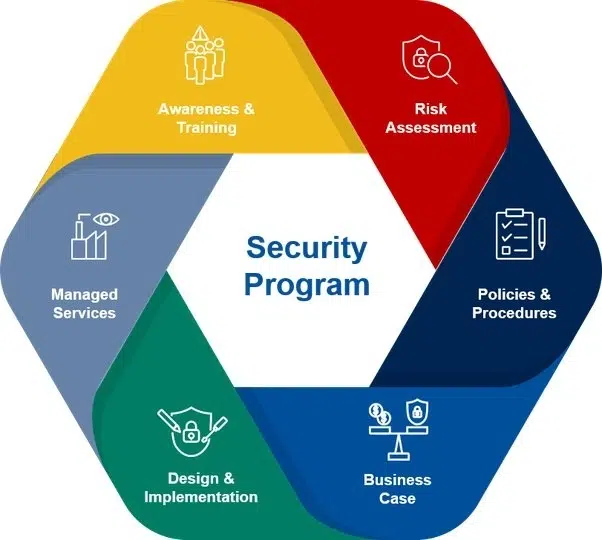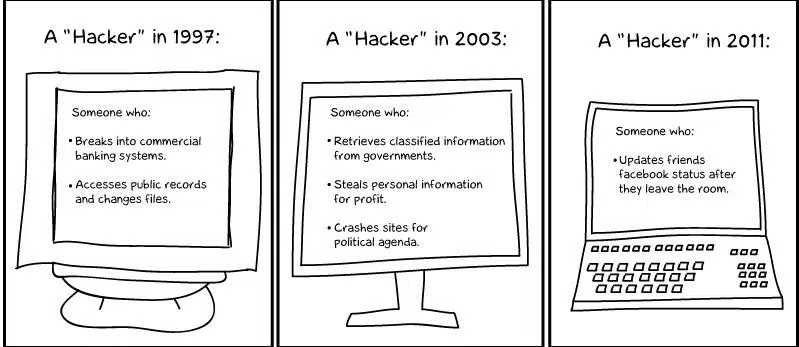
Unraveling the Mysteries of Coding and Cybersecurity: Endless Possibilities
Cybersecurity require coding have different views and opinions. Some say yes, while others have different view. Professionals who can safeguard our assets are in more demand as cyber attacks intensify and become more sophisticated. Many people ask if coding skills are necessary to pursue a job in cybersecurity. We’ll look at the connection between coding and cybersecurity in this blog article. Examine the possibility of learning cybersecurity without any programming experience
Does Cybersecurity require Coding for effective strategies
Each day, hackers invent new tricks to break into systems and steal sensitive information. Information security analysts act as the first line of defense, actively seeking out potential vulnerabilities before cyber criminals exploit them. Their role involves devising and implementing robust security measures to thwart cyber attacks. With hackers constantly honing their skills, there is a burgeoning demand for cybersecurity experts and for executing advanced security strategies. Cybersecurity require coding is an issue that is more important than ever in quickly changing digital environment of today.
Connection between Coding and Cyber Security
For the majority of entry-level positions in cybersecurity, proficiency in coding is typically not a mandatory requirement. Nonetheless, as cybersecurity experts aspire to attain mid or senior-level roles, a command of coding may become imperative for career progression within the field. Even if most cybersecurity jobs don’t need lots of coding, having some programming knowledge can be really handy. It can give you more job options and make it easier to understand the basics of keeping data safe.

A successful cybersecurity pro often thinks like a hacker to find weak spots. Knowing the coding tools that hackers use can be a big help in having this kind of mindset. Individuals new to the field of cybersecurity may find it beneficial to acquire foundational programming skills, and progressively expand their coding proficiency alongside accumulating experience in cybersecurity. Understanding coding is important. Not as much expertise as a developer is required. Effective cybersecurity require coding practices for staying one step ahead in the ongoing battle against cyber threats.
To finish tasks, you would occasionally need to develop scripts or configuration files, which would require some familiarity with coding. It can be beneficial to have coding skills when examining and evaluating code snippets for vulnerabilities. However apart from these situations there isn’t a need for coding expertise or familiarity with different frameworks. It’s practice to seek help from resources when facing challenges. Whether cybersecurity require coding abilities is more relevant than ever in today’s quickly changing digital ecosystem.
Cybersecurity activities that does not rely on coding
The main goal of cybersecurity is to protect digital assets. This includes safeguarding computer systems and networks from malicious attacks. You may need to know computer language or code in order to work in some positions in this sector. However,
not all cybersecurity jobs call for this expertise. Certain positions don’t require coding expertise; instead, they place more of an emphasis on planning and security measures. Therefore, there are a variety of employment in this industry, and being a part of it doesn’t always require being an expert with computers.

Information Security Management
This area focuses on developing and enforcing policies to safeguard an organization’s sensitive information and assets. Managers ensure systems are secure and sensitive data is protected from unauthorized access. This role demands knowledge of security practices and relevant laws.
Incident Response
Security incident responders locate, contain, and manage occurrences. They look into breaches and take action to stop them from happening again. Proficiency in critical and analytical thinking, as well as a thorough awareness of attacker techniques and security protocols, are essential for this position.
Risk Management
Risk managers assess potential security threats and create strategies to reduce them. They collaborate with the security team to identify vulnerabilities and implement protective policies. Knowledge of security practices and understanding the business are
crucial here.
Compliance
Compliance professionals ensure an organization adheres to applicable laws, regulations, and industry standards. They work with the security team to align policies with compliance requirements. This role demands a solid grasp of laws, regulations, and security best practices.
Education and Awareness
This role focuses on educating employees, clients, and stakeholders on cybersecurity best practices and current threats. Professionals create educational materials, conduct training, and run awareness campaigns. They also evaluate existing awareness programs and suggest improvements.
Cybersecurity activities that rely on Coding

As addressed above, programming knowledge is not necessary for cybersecurity if you want to remain below average and for entry level jobs, but if one wants to excel into upper echelons, then cybersecurity require coding and it is essential. Cybersecurity is not just knowing about all the vulnerabilities and how to fix them. It’s more than that, you’ll have to think like a hacker, such that whenever a hacker’s about to attack that PC, what could he look for? How can he enter the system?
More technically, how can he penetrate the security walls before he exploits the computer. It’s near to impossible if you aren’t acknowledged to coding/scripting. You’d just be a mere Script Kiddie without the knowledge of programming. For starters, you may start with C and then pick your favorite programming language, such as Python/Java before hopping onto or alongside cybersecurity course.
Conclusion:
To conclude, the field of cybersecurity provides ample opportunities that don’t hinge on extensive programming skills. In addition to the roles highlighted, positions like security analyst, consultant, architect, and penetration tester also stand out. While coding expertise can be an asset in certain contexts, it’s not a prerequisite for many cybersecurity positions. It’s worth noting, however, that a strong understanding of underlying technology is universally valuable for any cybersecurity professional.
The issue of whether cybersecurity require coding is more important than ever in the quickly changing digital environment of today. Unambiguously, the answer is yes. A solid cybersecurity strategy is built on coding proficiency. It enables professionals to design and implement efficient protection measures in addition to comprehending the intricate workings of complicated systems. Navigating the complex world of cyber dangers becomes a difficult undertaking without a strong foundation in coding. In summary, combining cybersecurity and coding is not only necessary but also crucial for securing our networked society.
